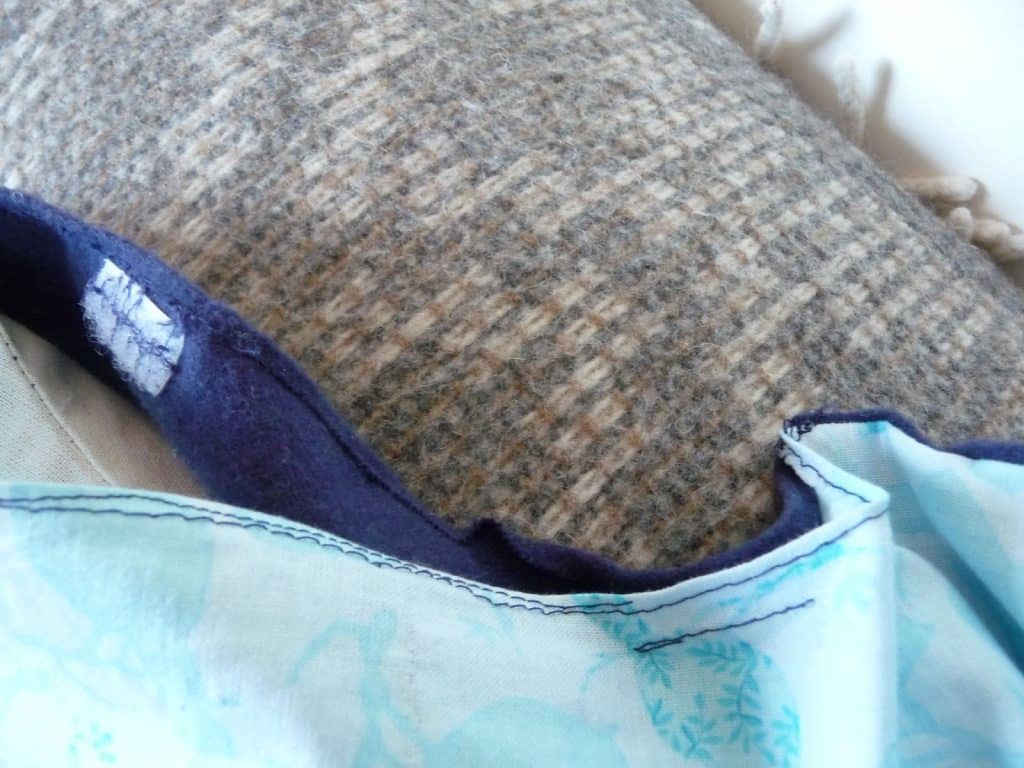Using a heating pad is a great way to relieve pains, muscle stiffness, and backaches. It allows you to achieve relaxation quickly without needing to take medicines.
But can you sleep with a heating pad on? Let’s discuss this question to provide you with a detailed answer. It’ll allow you to use a heating pad most effectively and efficiently.
Should You Sleep with a Heating Pad On?
It’s not advisable to sleep with a heating pad on. According to Science Direct, you should never leave any heat source on your body for more than 15 to 20 minutes. It can lead to severe skin burns and deform your muscles. So, you should always avoid falling asleep if you’re using a heating pad.
Keep in mind that your body performs different functions such as releasing anti-inflammatory chemicals, producing hormones, and lowering cortisol levels. These functions allow your body to recover naturally. Using a heating pad will increase your body temperature which will make you feel too hot.
According to the Journal of Physiological Anthropology, exposure to dry heat while sleeping decreases your sleep quality and REM (Rapid Eye Movement). And not getting REM sleep will affect your memory negatively. You’ll also experience difficulty concentrating during the day which will make you less productive.
Physical Dangers of Using a Heating Pad While Sleeping
Other than affecting your mental health, the use of a heating pad while sleeping can also affect your physical well-being negatively.
Muscle Injuries and Inflammation
One of the biggest side effects of using a heating pad for a long time is that it can cause muscle injury. According to Natasha Trentacosta, Sports Medicine Orthopedics MD, heating pads must be used with extreme caution as long exposure can result in muscle injury and even body inflammation.
Body inflammation is a very big problem as it can damage joints, organs, and arteries. In the worst cases, it can also lead to chronic diseases such as obesity, diabetes, blood vessel contraction, heart problems, cancer, and Alzheimer’s.
Skin Burns
If you often use a heating pad, you’d already know that it feels good only for the first several minutes. After that, it starts to feel too hot and sometimes unbearable. While you’re not sleeping, you can easily turn it off or remove it from your body.
However, it’ll most probably stay in contact with your body while you’re sleeping, especially if you’re a heavy sleeper. The NLM (National Library of Medicine) suggests that prolonged exposure to heating pads increases the risk of toasted skin syndrome which is also known as Erythema Ab Igne.
Fire Hazard
According to ESFI (Electrical Safety Foundation International), electric heating pads and blankets cause about 500 fire accidents every year. With constant use, these products can get damaged and spark a fire.
You can easily take the necessary measures to control the fire while you’re not sleeping. However, it can cause irreparable damage if you’re sleeping.
Read also: Can you use an electric blanket on a memory foam mattress?
Tips to Use a Heating Pad Safely

Heating pads play a big role in helping you to heal sore muscles, cramps, and back pains. But It’s important to ensure your safety while using this product. You can follow the tips listed below to use a heating pad safely.
- Always check your heating pad for broken or cracked electrical cord or other damages before using it.
- Never fall asleep while using a heating pad to avoid muscle injuries, body inflammation, skin burns, and fire accidents.
- Always start a heating pad on its lowest settings. You can always increase your heating pad’s temperature if needed.
- Don’t keep your heating pad in contact with your body for more than 20 minutes.
- Be extra careful while using a heating pad on the numb areas of your body. That’s because you won’t be able to feel the heat properly and it can lead to toasted skin syndrome.
- Place a thick piece of cloth or towel between your body and a heating pad to minimize the risk of side effects. This way you can also use a heating pad for more than 20 minutes consecutively.
- Don’t apply ointments or topical rubs before using the heating pad. Otherwise, the product will get absorbed in your bloodstream faster than it’s supposed to and it’ll increase the risk of side effects.
- Don’t use a heating pad if you’re pregnant without consulting with your doctor.
- Use ice instead of a heating pad if your injury is fresh (less than three days old).
- Never use a heating pad on cuts or open wounds as it increases blood flow.
- If a heating pad isn’t working and you don’t feel any reduction in pain, visit your physician immediately.
Alternatives to a Heating Pad
There are several other methods that you can use to achieve the same benefits that a heating pad offers including the following.
Use Ointments and Essential Oils
You also use natural pain-relieving ointments and essential oils to soothe your body and reduce inflammation. The easiest way to use these products is to apply them directly to the affected areas. Not only do they reduce chronic pain and swelling but they can also improve your mood and reduce anxiety.
Use Microwave Heating Pads
You can also use microwave heating pads instead of the traditional electric ones. You need to heat them in a microwave and place them on your body. Most microwave heating pads remain hot for 20 to 30 minutes and you can use them while sleeping as well.
There are also aromatherapy stuffed animals available in the market that can also be used for heat therapy. Other than offering heat, these products also release certain fragrances such as lavender that help your sleep better.
Take a Warm Shower

Taking a warm/hot shower will soothe your back pains and other body aches. Hot baths can also improve your mood, promote relaxation, reduce the production of the stress hormone, and regulate heart rate and blood pressure. You can also sit for 10 to 15 minutes in a bathtub filled with warm water for the same purpose..
Final Words
An aching body or a still back can make it extremely difficult for you to perform your daily activities. Using a heating pad can help you get rid of stiffness and inflammation. However, you should use this product with caution and should never sleep with a heating pad overnight. It’s important to ensure safety and avoid the side effects that a heating pad can cause.
